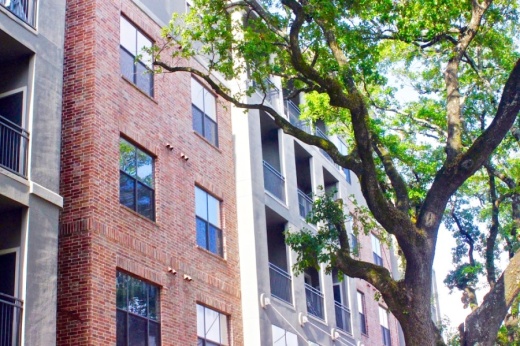The task force was established as a way for tenant and landlord representatives who work outside of elected positions to provide housing policy recommendations to Turner and Harris County Judge Lina Hidalgo.
Turner's previous handling of the task force drew criticism from some members after he refused to consider a grace period ordinance within the city despite a unanimous recommendation to adopt one.
In his statement about the decision, Turner wrote that the work would continue under the housing and community affairs committee made up of only City Council members.
"While I am proud and thankful for the work that has been done by the Task Force members," he wrote. "It is now time for the City Council Committee on Housing and Community Affairs to continue this work for the City of Houston."
Some members of the task force however say their work was just getting started.
“This is absolutely still needed,” said Jay Malone, Gulf Coast AFL-CIO political director and member of the task force. “Unions in our regions have experienced mass layoffs. We’re going to continue our advocacy.”
A spokesperson for Hidalgo said the task force will continue to work with the remaining members to implement their recommendations.
However, with Turner's decision, the city will no longer receive recommendations from the committee.
The announcement came a week after a Centers for Disease Control and Prevention order took effect nationwide Sept. 4, effectively banning evictions for renters affected by the coronavirus’ economic fallout as long as they supply a written declaration of need.
Richard Tomlinson, an attorney who often represents tenants in eviction proceedings though Lone Star Legal Aid, said it is still not clear if justice of the peace courts will consistently adhere to the CDC order or if landlords will find loopholes to its enforcements.
“I don't think landlords are going to gain very much by challenging this because there is always a way for a tenant to comply," Tomlinson said. "Most tenants who fill these out are going to really fit the qualifications, but I don't know how landlords are going to respond or how this rule is going to be applied in [justice of the peace] courts."
Turner’s statement pointed to the city and county’s rent relief funds established in the spring and again in mid-August as reasons to view the task force's work as successful. He has repeatedly said that financial assistance is a better policy option than a grace period that gives renters time but does not absolve them of debt.
“To date, the city has allocated $35 million in rental assistance, and the County approved an additional $25 million, totaling $60 million in rental relief. These programs provided much-needed relief to landlords and tenants at a critical time,” the statement read. “Because of this work, tens of thousands of people in the City of Houston and Harris County were able to stay in their homes, protecting their safety and the safety of their families.”
According to data from data analytics firm January Advisors, whose principal Jeff Reichman also sat on the task force, eviction filings have slowed over the course of the coronavirus pandemic but were beginning to rise in August and September before the CDC order was put in place.
Between Aug. 1 and Sept. 1, Harris County saw over 2,300 evictions filed compared to over 5,500 filed between Feb. 1 and March 1, the month preceding Houston’s lockdown orders in response to the coronavirus. In April, when the most eviction protections were in place at the state and federal level, eviction filings fell to 628.





